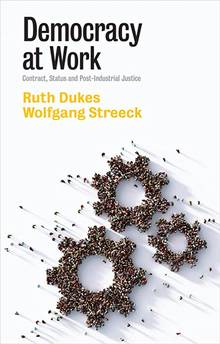Democracy at Work: Contract, Status and Post-Industrial Justice
Dukes, Ruth
Éditeur : WILEY
ISBN papier: 9781509548996
Parution : 2023
Code produit : 1465132
Catégorisation :
Livres /
Droit et sciences juridiques /
Droit et sciences juridiques /
Ouvrages généraux
Formats disponibles
| Format | Qté. disp. | Prix* | Commander |
|---|---|---|---|
| Livre papier | En rupture de stock** |
Prix membre : 26,55 $ Prix non-membre : 27,95 $ |
*Les prix sont en dollars canadien. Taxes et frais de livraison en sus.
**Ce produits est en rupture de stock mais sera expédié dès qu'ils sera disponible.
Description
In the countries of the global North, workplace democracy may be thought of as a thing of the past. Increasingly, working relations are regulated primarily by contract; workforces are fissured and fragmented. What are the consequences of this? How should we respond? Ruth Dukes and Wolfgang Streeck argue that the time is ripe to restate the principles of industrial democracy and citizenship for the post-industrial era. Considering developments within political economy, employment relations and labour law since the postwar decades, they trace the rise of globalization and the ‘dualization’ of labour markets – the emergence of a core and periphery of workers – and the progressive insulation of working relations from democratic governance. What these developments amount to, they argue, is an urgent need for political intervention to tame the new world of ‘gigging’ and other forms of highly precarious work. This, according to the authors, will require far-reaching institution-building designed to fill legal concepts such as ‘employment’ with political substance. This eloquent call for a reimagining and renewal of the institutional and material conditions of freedom of association and the reinvention of industrial democracy will be crucial reading for anyone interested in work in the twenty-first century.























